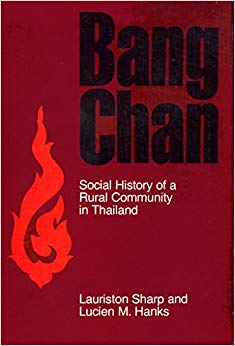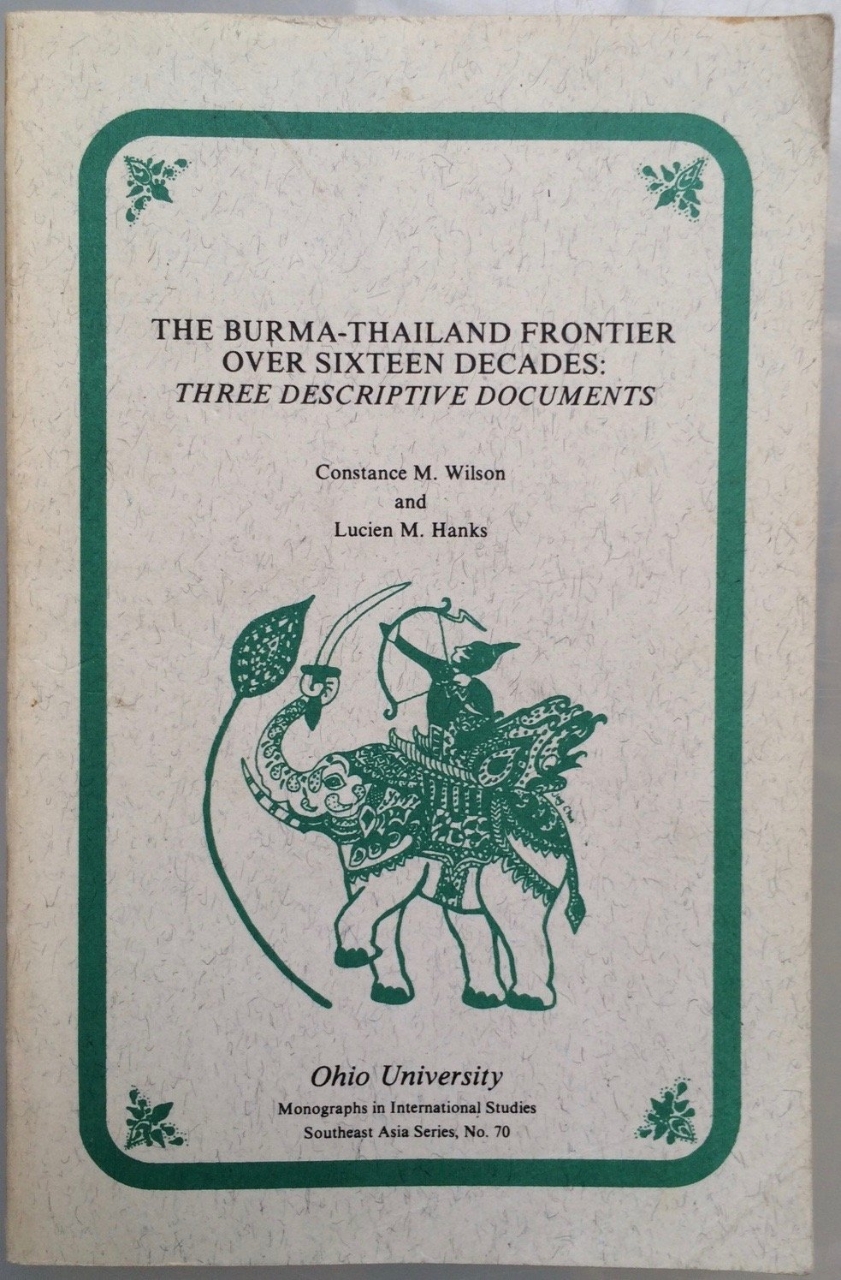Background
Lucien M. Hanks was born on March 25, 1910, in Madison, Wisconsin, United States. He was a son of Lucien Mason and Mary Esther Hanks. He had a brother and a sister.

Columbia University, New York City, New York, United States
In 1936 Lucien M. Hanks received his Doctor of Philosophy degree from Columbia University.

(Bang Chan traces the changing cultural characteristics of...)
Bang Chan traces the changing cultural characteristics of a small Siamese village during the century and a quarter from its founding as a wilderness settlement outside Bangkok to its absorption into the urban spread of the Thai capital. Rich in ethnographic detail, the book sums up the major findings of a pioneering interdisciplinary research project that began in 1948. Changes in Bang Chan's social organization, technology, economy, governance, education, and religion are portrayed in the context of local and national developments.
https://www.amazon.com/Bang-Chan-Community-Thailand-Anthropology/dp/1501721380/ref=sr_1_1?keywords=Bang+Chan%3A+Social+History+of+a+Rural+Community+in+Thailand&qid=1579000015&s=books&sr=1-1
1978

https://www.amazon.com/Burma-Thailand-Frontier-over-Sixteen-Decades/dp/0896801241/ref=sr_1_fkmr0_1?keywords=The+Burma-Thailand+Frontier+over+Sixteen+Decades%3A+Three+Descriptive+Accounts&qid=1579000066&s=books&sr=1-1-fkmr0
1985
Lucien M. Hanks was born on March 25, 1910, in Madison, Wisconsin, United States. He was a son of Lucien Mason and Mary Esther Hanks. He had a brother and a sister.
In 1931 Lucien M. Hanks received his Bachelor of Arts degree from the University of Wisconsin, and his Doctor of Philosophy degree from Columbia University in 1936.
Lucien M. Hanks began his career as a psychologist at Wisconsin State Prison, Waupun, Wisconsin, from 1936 to 1937. In 1937 he became an instructor in psychology at the University of Illinois, Urbana, and served until 1942. He joined the faculty at Bennington College, Bennington, Vermont, as an assistant professor in 1942, attaining the rank of full professor of psychology and anthropology, remaining in that position until his retirement in 1969.
He was also affiliated with the Southeast Asia Program of Cornell University (1952-1957), and during World War II he served as a psychologist for the Office of Strategic Services, Washington, D.C. (1943-1945).
His first book (with his wife, Jane Richardson Hanks) was Tribe under Trust (1948), followed by (as editor, with Jane R. Hanks and R. Lauriston Sharp) Ethnographic Notes on Northern Thailand (1965), Rice and Man (1972), Bang Chan: Social History of a Rural Community in Thailand (with Lauriston Sharp, 1978), and his last book, The Burma-Thailand Frontier over Sixteen Decades: Three Descriptive Accounts (with Constance M. Wilson, 1985).
Lucien M. Hanks is best known as the author of Rice and Man: Agricultural Ecology in Southeast Asia and co-author of Bang Chan: Social History of a Rural Community in Thailand. He received a Bronze Star for his services as a civilian in the Office of Strategic Services a National Science Foundation grant.
(Bang Chan traces the changing cultural characteristics of...)
1978Lucien M. Hanks was a member of the Association for Asian Studies, the American Anthropological Association, the Society for the Psychological Study of Social Issues, and the New England Psychological Association.
Lucien M. Hanks was married to Jane Richardson Hanks. They had a son, Tobias Richardson Hanks.
